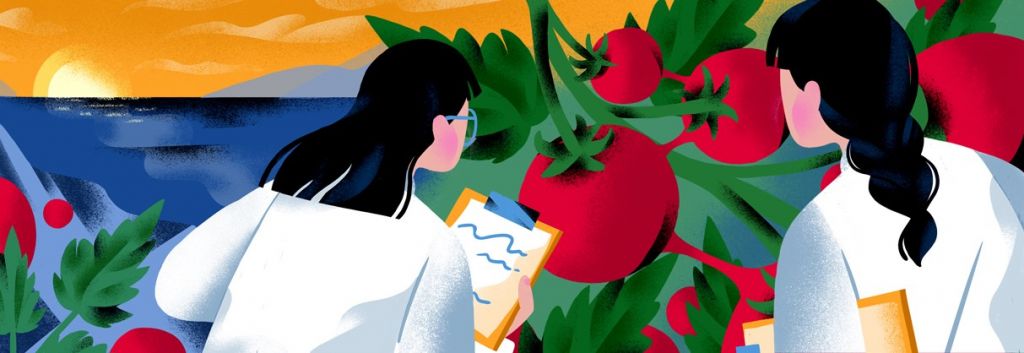Olga Dubey founded the Swiss startup Agrosustain with the intention to bring forth a natural alternative to chemical pesticides against mold. She shares how it all started and her company’s plans to end the massive amounts of food waste that mold is responsible for.
“Mold is everywhere, so it’s something that is very hard to control,” said Dubey, pointing out that every year, mold causes a loss of $60B in the form of food that has to go to waste before it can even reach the customer.
While in some countries mold is fought with chemical pesticides, these compounds pose a risk to the environment and to human health. In the EU, many of these pesticides are banned. “We need an alternative solution to reduce food waste,” urged Dubey.
Olga Dubey came up with a possible alternative during her PhD at the University of Lausanne. “After a few years of my PhD research I realized that what really motivated me was to develop something that can be used by farmers or throughout the supply chain and that is going to bring additional value to people.”
She used a plant that is naturally resistant to mold to source two compounds that can provide protection against mold and could present a more desirable alternative to existing chemicals. “Sourced naturally, our products are used in some countries as a food additive, and they have shown to have cancer preventive properties,” said Dubey.
But for the food industry to switch to this natural solution, Dubey believes it’s essential to demonstrate its efficacy is at the same levels as chemical pesticides. Agrosustain has taken on this task after raising €1M in December and is now running studies to determine how toxic its products are and how they should be handled by field workers. Then, the company will start pilot trials with partners that Dubey expects will lead to market approval in Europe and the US by the end of 2020.
“We are gonna start slowly doing market consultations in selected countries on the most transported crops, such as banana, avocado and pineapple. Then we would like to expand to the most stored crops, like potatoes for example, which are stored for half a year, or carrots, as we are losing around 55% of carrots. Afterwards we’ll move to highly perishable crops such as berries, where the loss is even higher because of mold.”
Only founded in 2018, Agrosustain is already making great strides. Dubey says it was all thanks to the network of people she has met in her journey, which started at an entrepreneurship course that inspired her to take the first steps to turn her research into an application.
She started talking to advisors and participating in startup competitions and decided to form a team of people with complementary experiences in order to be able to take the next steps and raise the funds needed to take the product forward.
As CTO she recruited her husband, Sylvain Dubey, who runs an ecology research group at the University of Lausanne. “The first steps are very stressful sometimes, and you really need someone who you can talk with and rely on,” said Dubey. To run business development she got Jean Pascal Aribot, who used to work in sales for Nestlé.
Together, the three co-founders started developing a business plan in September 2017. A year later, they were ready to launch Agrosustain and get the funding they needed to start running the studies required to get a product on the market. Now with a full team in place, Dubey has finally within her reach the goal of launching a product that can put a stop to the massive food waste generated in the industry.





